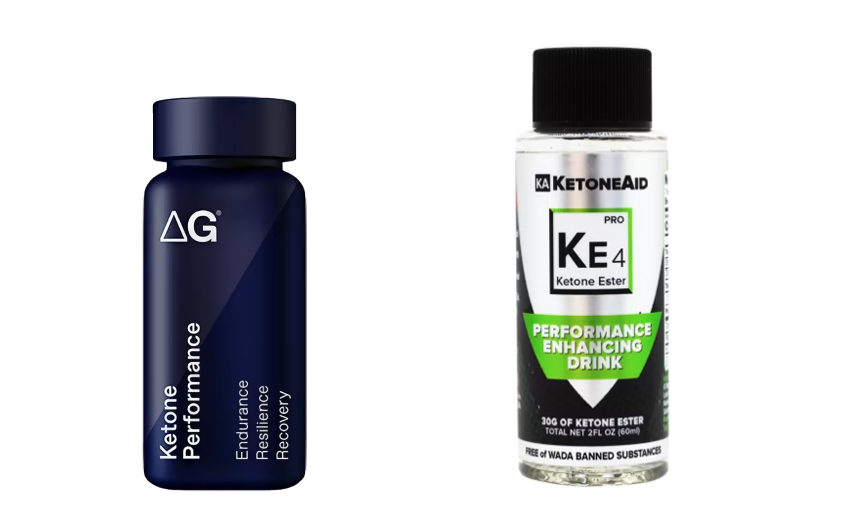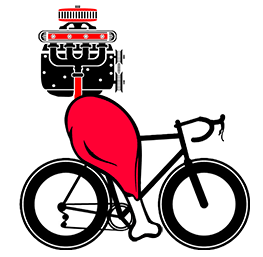Most Ketone Ester studies have looked at a direct impact on cycling performance in a certain window after taking an ester. Those results haven’t been promising. This study is different. It looked at whether Ketone Esters would raise natural EPO levels in male cyclists. Injected EPO was used by cyclists in the height of the doping era to improve performance. Ketone esters could be considered to offer a more natural way to increase EPO.

Study Summary
This study investigated the effects of ingesting a ketone monoester supplement on erythropoietin (EPO) levels after exercise in nine healthy men. EPO is a hormone that stimulates the production of red blood cells, which can improve oxygen delivery to muscles and enhance endurance performance.
Participants completed two cycling trials with different nutritional interventions. In the control trial, they only consumed a carbohydrate and protein drink after exercise. In the ketone monoester trial, they consumed the same drink plus a ketone monoester supplement. The exercise involved cycling for an hour with alternating intensities (starting at 50% and 90% of maximal aerobic capacity, then decreasing to 50% and 80%, and finally 50% and 70% when the higher intensity was unsustainable).
Results showed that EPO levels increased more with the ketone monoester supplement than in the control trial. The peak EPO concentration was also higher in the ketone trial. Additionally, serum beta-hydroxybutyrate (a type of ketone body) levels were higher, and glucose levels were lower with the ketone supplement.
Real-World Implications for Competitive Cyclists
- Increased EPO levels: Consuming a ketone monoester supplement after exercise may increase EPO levels, potentially improving red blood cell production and oxygen delivery to muscles.
- Enhanced endurance performance: Higher EPO levels from ketone monoester supplementation could lead to better endurance performance in cyclists. (Note: This is speculative as the study did not directly measure performance improvements.)
- Altered glucose metabolism: Ketone monoester supplementation may affect glucose metabolism, as evidenced by lower glucose concentrations in the ketone trial. The implications of this finding for performance are unclear and may warrant further investigation.
- Oral ketone supplementation: This study suggests that orally ingested ketone monoesters can impact EPO levels, offering a new avenue for ketone supplementation in endurance athletes.
Based on these implications, competitive cyclists may consider incorporating ketone monoester supplements into their post-exercise nutrition to potentially enhance endurance performance. However, it is essential to note that this study involved a small sample size of nine healthy men, so further research is needed to confirm these findings in larger and more diverse populations.
ABSTRACT OF STUDY:
Eric Evans, Jean-Philippe Walhin, Aaron Hengist, James A. Betts, David J. Dearlove, and Javier T. GonzalezAmerican Journal of Physiology-Endocrinology and Metabolism 2023 324:1, E56-E61
Ketone monoester ingestion increases postexercise serum erythropoietin concentrations in healthy men
Intravenous ketone body infusion can increase erythropoietin (EPO) concentrations, but responses to ketone monoester ingestion postexercise are currently unknown. The purpose of this study was to assess the effect of ketone monoester ingestion on postexercise erythropoietin (EPO) concentrations. Nine healthy men completed two trials in a randomized, crossover design (1-wk washout). During trials, participants performed 1 h of cycling (initially alternating between 50% and 90% of maximal aerobic capacity for 2 min each interval, and then 50% and 80%, and 50% and 70% when the higher intensity was unsustainable). Participants ingested 0.8 g·kg−1 sucrose with 0.4 g·kg−1 protein immediately after exercise, and at 1, 2, and 3 h postexercise. During the control trial (CONTROL), no further nutrition was provided, whereas on the ketone monoester trial (KETONE), participants also ingested 0.29 g·kg−1 of the ketone monoester (R)‐3‐hydroxybutyl (R)‐3‐hydroxybutyrate immediately postexercise and at 1 and 2 h postexercise. Blood was sampled immediately postexercise, every 15 min in the first hour and hourly thereafter for 4 h. Serum EPO concentrations increased to a greater extent in KETONE than in CONTROL (time × condition interaction: P = 0.046). Peak serum EPO concentrations were higher with KETONE (means ± SD: 9.0 ± 2.3 IU·L−1) compared with CONTROL (7.5 ± 1.5 IU·L−1, P < 0.01). Serum β-hydroxybutyrate concentrations were also higher, and glucose concentrations lower, with KETONE versus CONTROL (both P < 0.01). In conclusion, ketone monoester ingestion increases postexercise erythropoietin concentrations, revealing a new avenue for orally ingestible ketone monoesters to potentially alter hemoglobin mass.
NEW & NOTEWORTHY To our knowledge, this study was the first to assess the effects of ketone monoester ingestion on erythropoietin concentrations after exercise. We demonstrated that ingestion of a ketone monoester postexercise increased serum erythropoietin concentrations and reduced serum glucose concentrations in healthy men. These data reveal the possibility for ketone monoesters to alter hemoglobin mass.

Jordan Fowler has experience as a head swimming coach of the Frisco Swim Team, a TAAF-awarded coach, a track and field distance running consultant for select Texas High School runners, and has competed as a triathlete, road runner, and cyclist. Though he is remarkably slower than he was in his 20s and 30s, he still enjoys endurance sports and sports science studies.
